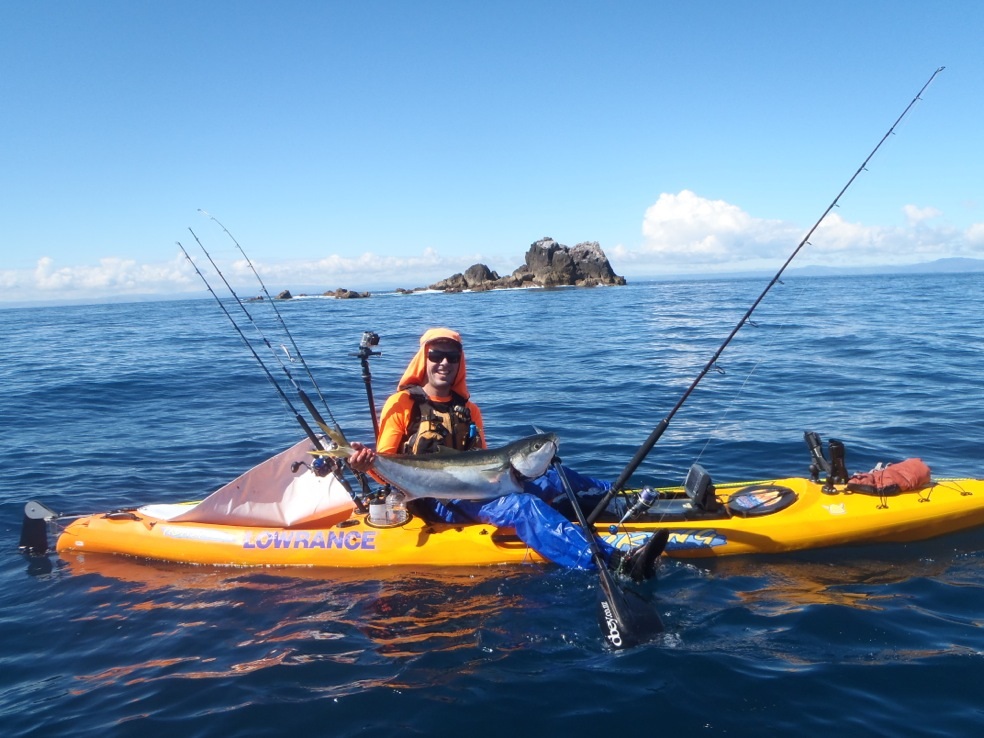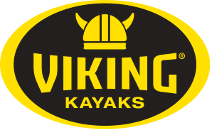Fueling the Fire – A nutritional guide for kayak anglers
9:02AM 9th Feb 14
In this guest blog post Tim Taylor (NZ Kayaker) shares some of his guidlines around nutrition which will help those of you spending long hours on the water..
Tim begins - On a recent long distance kayak fishing trip (40+ kilometers) I started to think about food. I was thinking about what I eat, why I was eating it, and what other people typically eat. Inside my Tackle Pod™ I had a mountain of muesli bars, snacks and energy gels, as well as 3 liters of water and electrolyte drinks in my chillpod. Before I had got on the water, I had eaten a large bowl of muesli and 3 pieces of toast. I had also stashed some leftover lasagna and a couple of water bottles in my icebox for afterwards. This was a huge amount of food in total but I knew that I would need every ounce of it and probably more on the way home.
In contrast I though about what my mates often brought along for a big day. Typically this would be a few muesli bars and a water bottle. Maybe an apple or a soggy sandwich if they were really excited. Time and again I’ve paddled with people who struggle to keep up with me or make it back at the end of the day. When I asked them what they’ve had to eat I often hear the clichéd line “I thought I’d be right mate, I had a big breakfast…” What they really should say is “I had a big night with the boys so I grabbed a cup of coffee and a pie from the servo on the way”.

Well it’s time to put an end to this sort of behavior because lets face it, kayak fishing is a sport and only athletes compete in sports! So as we are all athletes, we need start treating our body like it, and this means giving it the right fuel to let it perform to its maximum. Now during my NZ expedition I developed a pretty good idea about what my body needs but I’m obviously not an expert, so for this article I spent some time questioning my personal trainer, Dave Jaggs, from Beyond PT. Please note: because there are such a wide variation of age, weight, and fitness levels, we have used averages for all of the following questions. If you are serious about your eating, we suggest you talk to a professional like Dave or contact a nutritionist.
Question 1: How many calories do we need to fuel us during the day?
Answer: the average man burns 2500 calories and the average woman burns 1700 calories per day when sedentary (i.e. working at a desk).
Question 2: How many calories do we burn while kayaking?
Answer: for steady state exercise (normal kayaking speed) the average person burns about 600 calories per hour and for hard out exercise you burn around 1000 calories per hour. During an average 5-hour fishing trip we would burn about 3000 calories (5 x 600), and on a big 12-hour fishing trip we would burn between 7000-12000 calories. To put this in perspective, a muesli bar has about 140 calories so you do the math for how much you should be eating.
Question 3: How much water do we need to be drinking?
Answer: the average person burns/sweats out 1 liter of water per hour when exercising. So for a 5 hours trip we should really be taking 5L of water. This isn’t ideal because that’s 5kg of extra weight but a good point to remember is that you will use the water during the day and hopefully replace it with fish…so your kayak will remain much the same weight throughout the whole day.
.jpg)
Tims’ Note: Dehydration is the main source of cramp so drink up!
Question 4: Obviously we cant eat or drink the ideal amount of food and water that our body needs while kayaking as there isn’t that much room in the kayak – what do you recommend is the best compromise?
Answer: In an ideal world we should be eating and drinking every 15 minutes while exercising, however eating every 45 minutes is a good average but take more frequent sips of water (a water bladder is ideal for this). Eating doesn’t mean a big meal; quarter of a muesli bar or a few nuts and raisins is adequate.
Question 5: What are the ideal sorts of food that we should be eating while fishing?
Answer: slow release (complex) carbohydrates and proteins are best. When you eat carbohydrate (sugar), your body naturally produces insulin to counteract the effects. Fast release carbohydrates e.g. refined sugars (lollies) cause an insulin spike (hypoglycemia), which is the characteristic sugar high that leaves us feeling like dirt when we come crashing back down. Complex carbs take longer for your body to digest so they release their energy over a longer period, keeping you going harder for longer. Wholegrain bread, pasta, and muesli are good examples of foods that contain complex carbs.
Protein is found in a range of foods e.g. meat, fish, and nuts. Protein is used to help build/repair your muscles. A good snack for out on the water is mixed nuts or protein bars (just avoid the sugar and salt coated types of nuts). You can also mix in protein powders with drinks and other foods (see next question).
.jpg)
Question 6: I hear a lot about energy drinks, sport gels, and protein powders these days; what do they do and which is best?
Answer: Many sports drinks are little more than sugar and a bit of flavor mixed in with water; and energy drinks are little more than a cocktail of unhealthy additives. To put it simply, if you buy it from a service station, it’s probably not going to be good for you.
On the other side of the equation, there’s now a whole range of excellent electrolyte and protein powders, drinks, and gels. All of these have been developed to benefit your body in some way either before during or after exercise. When used properly they can help to maintain or increase your energy levels, decrease muscle pain, increase muscle growth, and decrease recovery times after exercising. They can even help with preventing problems such as cramp (dehydration is still the main cause). These sorts of products can be brought online, from good sport stores, pharmacies, and health stores.
Tim’s Note: I have an XYZ protein powder as soon as finish a kayaking or diving trip. There is a 15-minute window after exercise, when the body can rapidly metabolize protein - by supply it with additional protein you are helping yourself to grow stronger…it’s not all about becoming a muscle bound redneck.
Question 7: We often compete in fishing competitions, what’s the ideal diet during these events?
Answer:
Night before: a well-balanced meal including fish or meat, vegies, and some complex carbs e.g. pasta or rice. Try to avoid alcohol, overly fatty foods, and sugary deserts.
Breakfast Day 1: multigrain toast and poached eggs with 1L of water including electrolytes.
Snacks: 6-8 muesli bars during an 8-hour day, mixed nuts, and a banana (we all know they aren’t bad luck!)
Lunch: a good wholegrain sandwich or take a pre-made raw fish salad and fillet up a fresh snapper (you can’t get better than that!)
Drinks: 3L of water 2L of electrolyte drink
Extras: 5 x energy gels
Off the water: have a good meal straight away – tuna pasta bake is ideal (protein & complex carbohydrates). Have this pre-prepared and stored in you ice box (remember the 15 minute window for protein). Continue to drink lots of water right until you go to bed.
Avoid: caffeine, alcohol, fatty foods, and sugary foods.
.jpg)
Tim’s Note: for many of us fishing competitions are a great chance to catch up with old mates and have a good time with the boys. However if you’re serious about competing, leave the celebrations until after prize giving and plan your eating in advanced…rocking up to a remote fishing location with little more than a loaf of bread and a tray of eggs then expecting to live off fish is a bad idea!
Final Word.
As you can see, there is far more to eating than what most of us could have ever imagined. I can hear many of you remarking, “What a complete load of bollocks…I just want to go fishing” and to that I say “that’s totally cool, get amongst it”. However if you are serious, or even if you want to improve you game a bit, then some if not this entire article will be greatly beneficial to you. I suggest you start with small steps and build on them as they become habit – cut out the morning coffee and replace it with water, throw a few more muesli bars in with your lures, or pack a solid feed to have as soon as you get off the water. As Dave remarked to me “If it gives you another hour of energy to keep fishing, then it can’t be a bad idea!”
Paddle Hard Everyone. Tim Taylor NZ Kayaker
You can find out more about Tim in the interview about his book, "The complete Guide to Kayak Fishing in New Zealand" HERE





